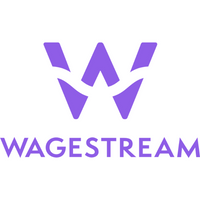Four ways to use benefits to help staff build their day-to-day financial resilience

Businesses looking for a speedy recovery need to provide direct and immediate assistance to help workers rebuild their financial resilience. Here are four ways to use benefits to help staff build their day-to-day financial resilience.
1. Helping with the here and now
After months of furlough and potential reduced wages, your staff need help with understanding where they are financially and what their next steps are.
The best way to do this is by giving access to helpful budgeting tools that not only provide an overview of expenditure, but also offer a real-time view of their earnings so that they can plan ahead.
Months of uncertainty around what employees are going to get paid and when means that this kind of support can be hugely impactful.
2. Earned wage access
With 19% of people saying they turned to credit cards to cover necessary items in the first four weeks of lockdown, according to Standard Life Foundation’s, Coronavirus Financial Impact Tracker (April 2020), employers need to provide better liquidity through access to earned wage access schemes to help workers avoid negative cycles of debt.
Earned wage access or earned salary access schemes (ESAS) quite simply allow employees to access their wages as they’re earned and avoid unnecessary debt.
Our own earned wage access scheme has already helped 42% of users avoid turning to payday lenders, 37% avoid going into an overdraft, and 65% cover an unexpected bill with their own wages.
3. Building financial knowledge
Empowering employees to make the right decisions when it comes to their money should only be done through independent financial guidance. An unbiased partner can help to protect the employer and help employees feel more confident about the quality of information they’re receiving.
Gamified education courses are a great way to get staff engaged with financial education resources when working remotely.
4. Encouraging a savings habit for the future
After you’ve helped your staff back on their feet, you need to promote good savings habits so that they can start to build a more secure financial future. Helping staff create a financial buffer means that they have the ability to weather any financial storms of the future.
Incentivised and automatic savings direct from salary are a great way to make it simple and help employees save in a manageable and effective way.
For more information on how to promote good savings habits, read our report Ultimate starter guide for saving.
This article is provided by Wagestream.
In partnership with Wagestream
Wagestream’s financial wellbeing platform makes work more rewarding for 3 million people.







